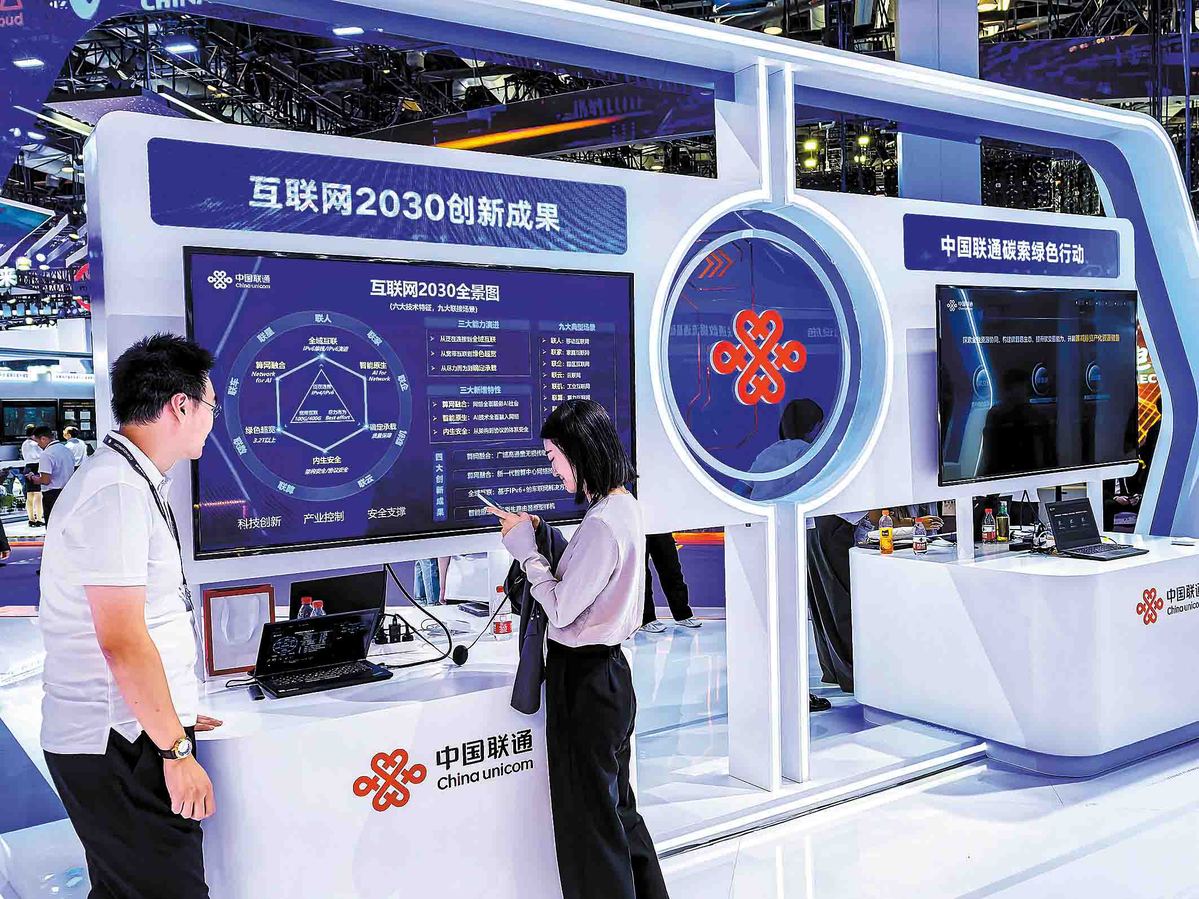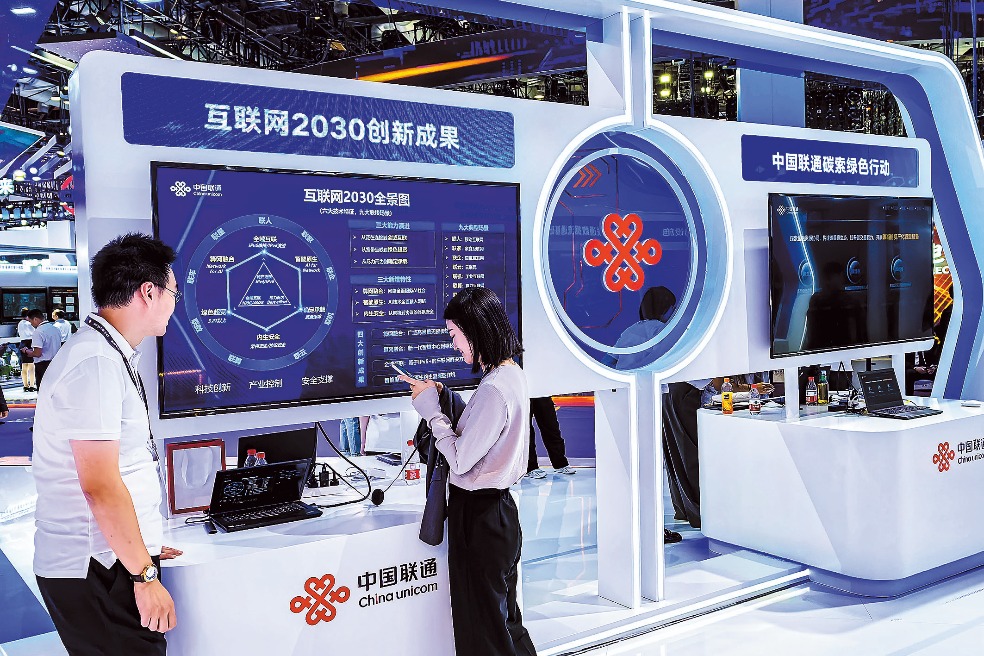SOE forming vanguard of nascent low-altitude economy


Imagine piloting a drone through mist-clad mountain valleys, skyscrapers and bustling urban corridors at breathtaking speeds, all from a control station.
Now envision that same drone transforming into an airborne lifesaver, delivering critical blood supplies across a metropolis in 15 minutes.
These are not scenes from a sci-fi film, but real-world demonstrations at China Unicom's "Smart Skies, Connected Future" exhibition zone during the 8th Digital China Summit held in Fuzhou, Fujian province, in late April.
The State-owned telecom company is positioning itself at the vanguard of China's burgeoning low-altitude economy, a sector designated as a strategic emerging industry to drive high-quality development.
China's low-altitude economy is rapidly evolving from conceptual buzzword to operational backbone.
Backed by national policies and breakthroughs in 5G-Advanced networks, a critical evolution of 5G technology, this sector is projected to exceed 1 trillion yuan ($138.6 billion) in 2026, up from 505.95 billion yuan in 2023, according to a report by market research firm CCID Consulting.
At the summit, China Unicom showcased its 5G-A integrated sensing and communication technology, a game-changer enabling real-time coordination between drones, ground systems, and air traffic control. Its crown jewel, an urban drone blood delivery network, spans 1,200 square kilometers.
By leveraging 5G-A's ultrareliable low latency and centimeter-level positioning, the system slashes delivery times by 60 percent, bypassing traffic gridlock to ensure lifesaving efficiency. "This isn't just about speed — it's about rewriting the rules of urban resilience," said an engineer of China Unicom at the demo.
China Unicom has so far deployed over 200 such benchmark projects nationwide for low-altitude economy in areas including disaster response, industrial inspections, tourism, public safety and logistics.
Luo Jun, director-general of the China Low-Altitude Economy Alliance, said the potential for the low-altitude economy is vast, with market demand driving the development of advanced personal air vehicles and sophisticated logistics tools.
"China's low-altitude economy is still in the nascent stage," Luo said, noting the significant market space and the current focus on lightweight, low-speed drones and small vertical takeoff and landing aircraft.
He said that as the low-altitude economy evolves, Chinese companies are poised to drive innovation, enhance infrastructure and ensure sustainable growth. The dynamic sector is set to become a cornerstone of China's economic landscape, fostering new quality productive forces and serving as a new growth engine.
China Unicom's emphasis on low-altitude economy is part of the company's broader push to deepen digital-intelligence integration and innovation to empower the construction of a Digital China.
Chen Zhongyue, chairman of China Unicom, said the company is a key contributor to the nation's digital transformation, outlining the company's three-pronged strategy to advance intelligent digital infrastructure, cutting-edge technologies and innovative applications.
The senior executive highlighted efforts to strengthen foundational networks, including scaling 5G-Advanced commercialization across over 300 cities and piloting 10-gigabit optical networks to support ultra-high-speed communities, industrial parks and factories. The company is also exploring integrated low-altitude intelligent networks for airspace coverage.
In parallel, China Unicom is accelerating the upgrade of internet data centers to AI-driven data centers and shifting from general computing to intelligent computing. Initiatives include establishing 10 hub-based intelligent computing centers and deploying over 300 edge computing nodes.
Chen also showcased the company's AI innovations, including the Yuanjing AI large language model and over 40 industry-specific models widely recognized for enhancing economic operations, urban governance and industrial manufacturing.
Leveraging its expertise, China Unicom has formed specialized service teams to support digital economy, e-government, cultural digitization, smart societies and ecological sustainability.
Notably, its GeWu industrial internet platform, integrated with the Yuanjing industrial AI model, has optimized scenarios like simulation design, predictive maintenance and process control. To date, the company has implemented 7,500 5G-enabled factories and 30,000 industrial internet projects.
Looking ahead, Chen reaffirmed China Unicom's commitment to collaborating with partners across sectors to drive Digital China's development through intelligent infrastructure, technological innovation and transformative applications.




































